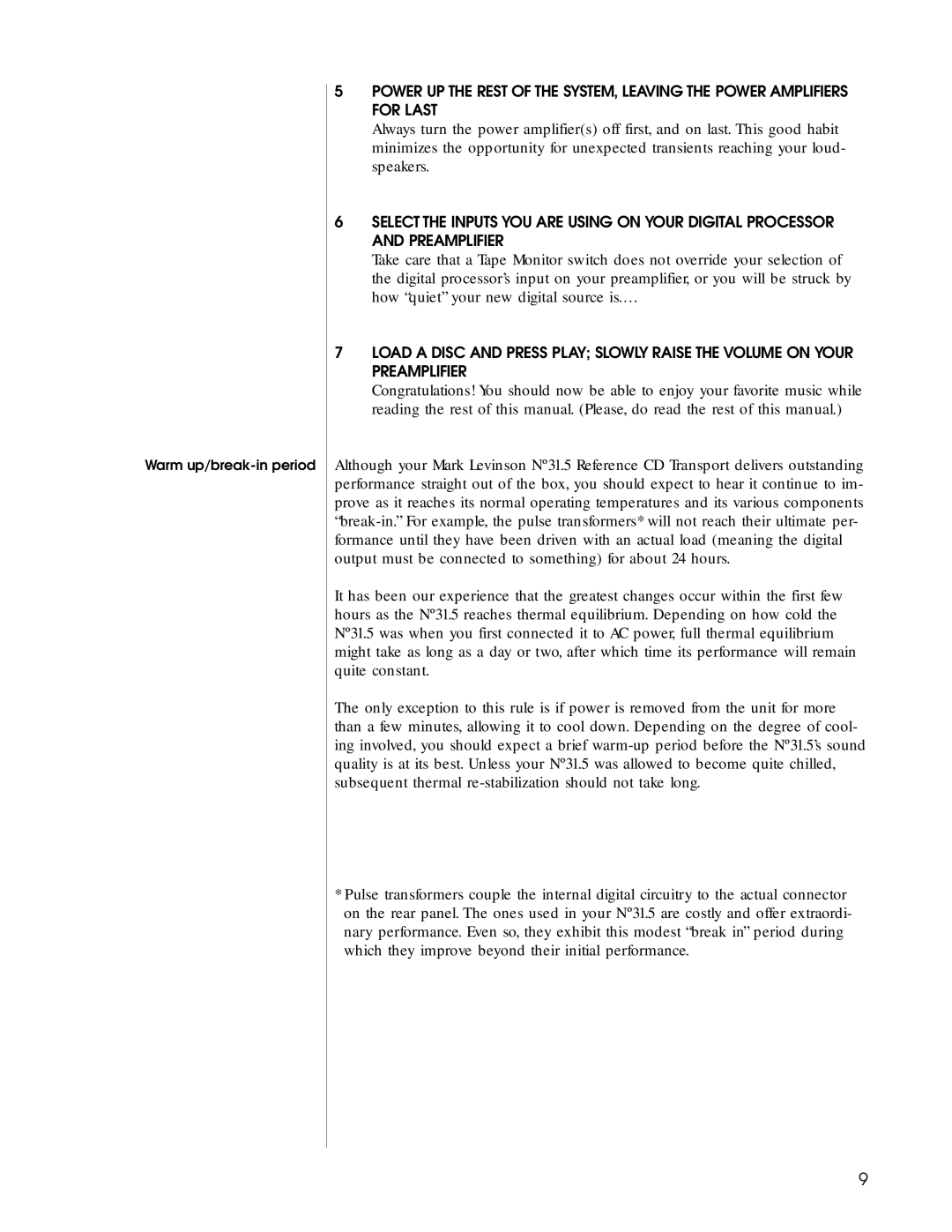Warm up/break-in period
5POWER UP THE REST OF THE SYSTEM, LEAVING THE POWER AMPLIFIERS FOR LAST
Always turn the power amplifier(s) off first, and on last. This good habit minimizes the opportunity for unexpected transients reaching your loud- speakers.
6SELECT THE INPUTS YOU ARE USING ON YOUR DIGITAL PROCESSOR AND PREAMPLIFIER
Take care that a Tape Monitor switch does not override your selection of the digital processor’s input on your preamplifier, or you will be struck by how “quiet” your new digital source is.…
7LOAD A DISC AND PRESS PLAY; SLOWLY RAISE THE VOLUME ON YOUR PREAMPLIFIER
Congratulations! You should now be able to enjoy your favorite music while reading the rest of this manual. (Please, do read the rest of this manual.)
Although your Mark Levinson Nº31.5 Reference CD Transport delivers outstanding performance straight out of the box, you should expect to hear it continue to im- prove as it reaches its normal operating temperatures and its various components
It has been our experience that the greatest changes occur within the first few hours as the Nº31.5 reaches thermal equilibrium. Depending on how cold the Nº31.5 was when you first connected it to AC power, full thermal equilibrium might take as long as a day or two, after which time its performance will remain quite constant.
The only exception to this rule is if power is removed from the unit for more than a few minutes, allowing it to cool down. Depending on the degree of cool- ing involved, you should expect a brief
*Pulse transformers couple the internal digital circuitry to the actual connector on the rear panel. The ones used in your Nº31.5 are costly and offer extraordi- nary performance. Even so, they exhibit this modest “break in” period during which they improve beyond their initial performance.
9
